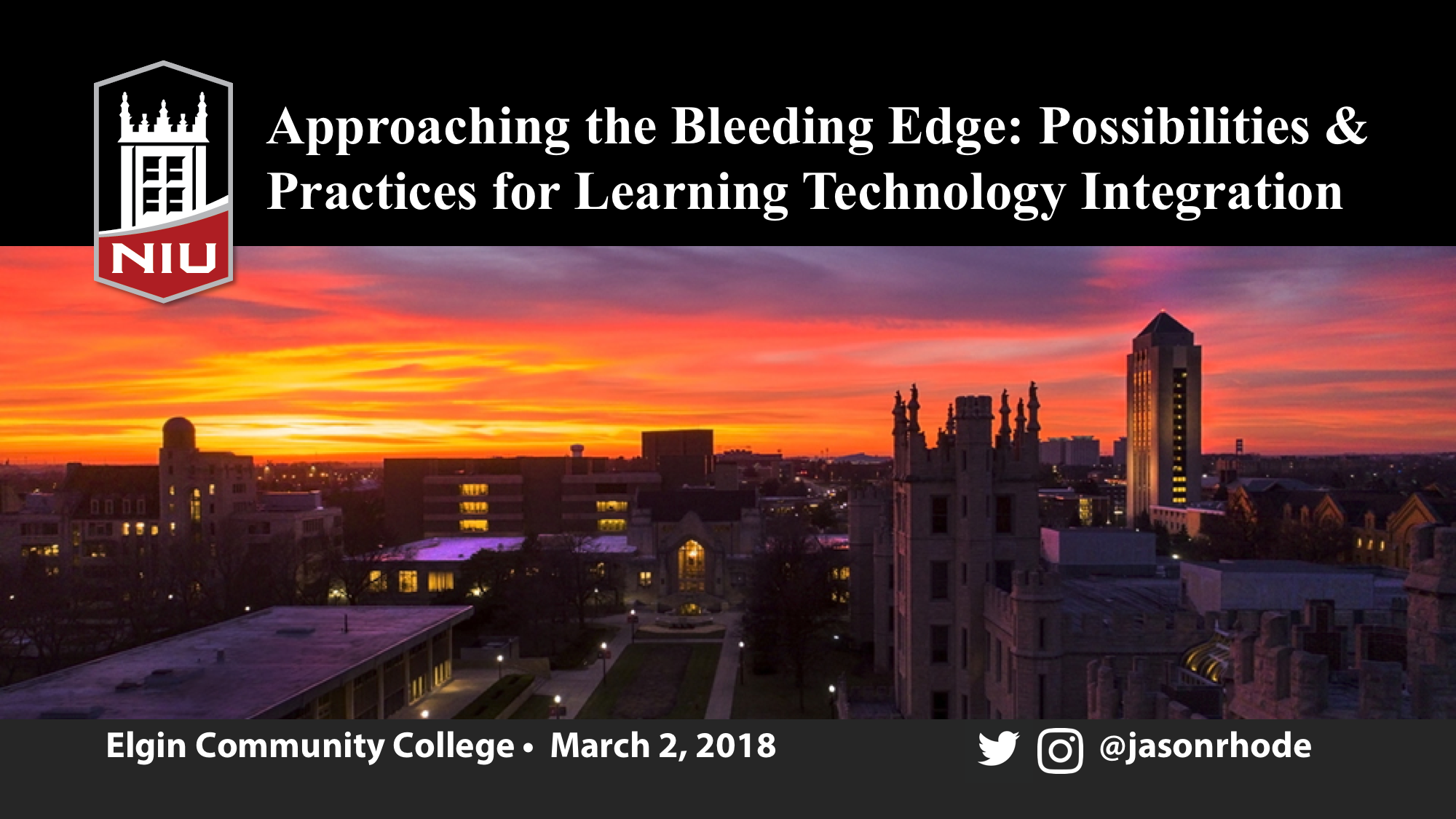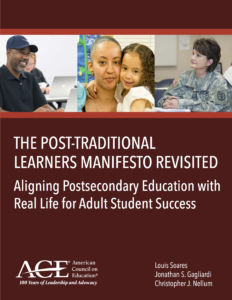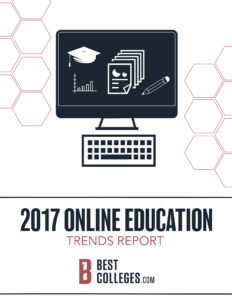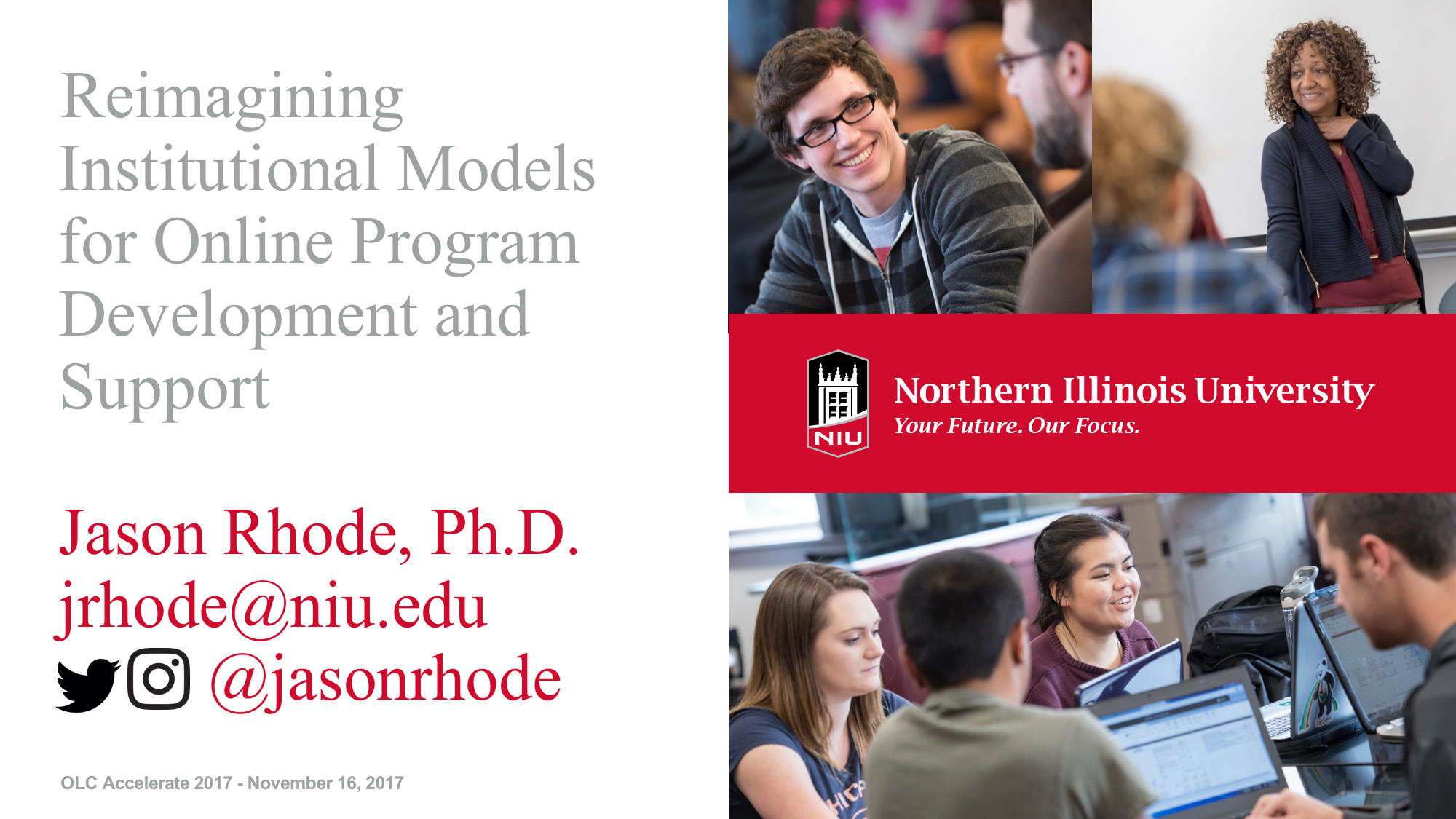 As I approach fifteen years at Northern Illinois University (NIU), I’ve accepted a new opportunity to become the university’s first Executive Director of Extended Learning and Chief Online Learning Officer. As I pause to look back on my path to this point, I’m reminded of what a fantastic journey I’ve had and I’m filled with excitement for what lies ahead.
As I approach fifteen years at Northern Illinois University (NIU), I’ve accepted a new opportunity to become the university’s first Executive Director of Extended Learning and Chief Online Learning Officer. As I pause to look back on my path to this point, I’m reminded of what a fantastic journey I’ve had and I’m filled with excitement for what lies ahead.
I joined NIU in 2004 as Online Technologies Coordinator with the Faculty Development and Instructional Design Center, where I was responsible for developing and offering in-depth training programs and consultations on teaching with technology and online teaching.
Just prior to joining NIU I had completed an online Master’s Degree in Education in Curriculum and Instruction and it was through that experience that I fell in love with online education. As I finished that program, I was asked by a mentor of mine who was interested in launching some undergraduate certificate programs online to share my experiences and help his institution, University of Valley Forge, take the first steps toward developing their online program offerings.
After having been in this role at NIU for two years, I was offered the position of Assistant Director in 2006, where I was then tasked with directly overseeing all faculty training and professional development offered by the center for more than 1,500 faculty participants annually.
It was during this time that I continued to pursue my academic interests in instructional design and online curriculum development and I earned a Ph.D. in Education with a specialization in Instructional Design for Online Learning.
I took advantage of every opportunity to teach, design and develop online courses, and engage in scholarship and service within online education and faculty development. I taught instructional design and educational technology courses as an adjunct for a number of institutions before being invited in 2016 to join the faculty of the Department of Educational Technology, Research and Assessment at NIU where I currently have joint faculty appointment as Assistant Professor of Instructional Technology and develop and teach courses in instructional design and educational technology, advise and supervise students, serve in department, college, and university committees, and pursue research and scholarly activities.
As accolades came along, I accepted invitations that resulted to share my experience and expertise designing and developing blended and online courses and programs with faculty at numerous institutions across the country and was privileged to have been invited to lead faculty development seminars on blended and online course design, as well as teaching with technology topics.
I was also invited to serve on a number of professional organizations within academic technology and online education, including serving on the steering committee, program chair, and assistant conference chair for the Online Learning Consortium Emerging Technology for Online Learning International Symposium (now called OLC Innovate), as well as an inaugural member of the advisory board for the National Council for Online Education, among others.
In late 2013, due to new presidential leadership at NIU and a massive institutional reorganization, the founding Director of Faculty Development was appointed to a new position as Vice Provost for Faculty Affairs and I was asked to switch roles and accepted the position as Director of Faculty Development and Instructional Design Center. In this position that I’ve held for the past 5 years, I’ve overseen all operations of Faculty Development and Instructional Design Center at NIU.
I’ve recently accepted the invitation from the Executive Vice President and Provost to lead NIU’s online and off-campus education efforts, which includes providing direction and oversight to restructured faculty development and instructional design functions in an expanded Faculty Development and Instructional Design Center, as well as strategic leadership and long-range vision for the development and delivery of academic credit-bearing online and off-campus courses and programs.
I’m eager to begin this new role and blessed to continue working with such an amazing team already in place as well as to new collaborations with faculty, staff, and leadership from across the university and outside as together we move online and off-campus education forward. Much more is yet to come!





